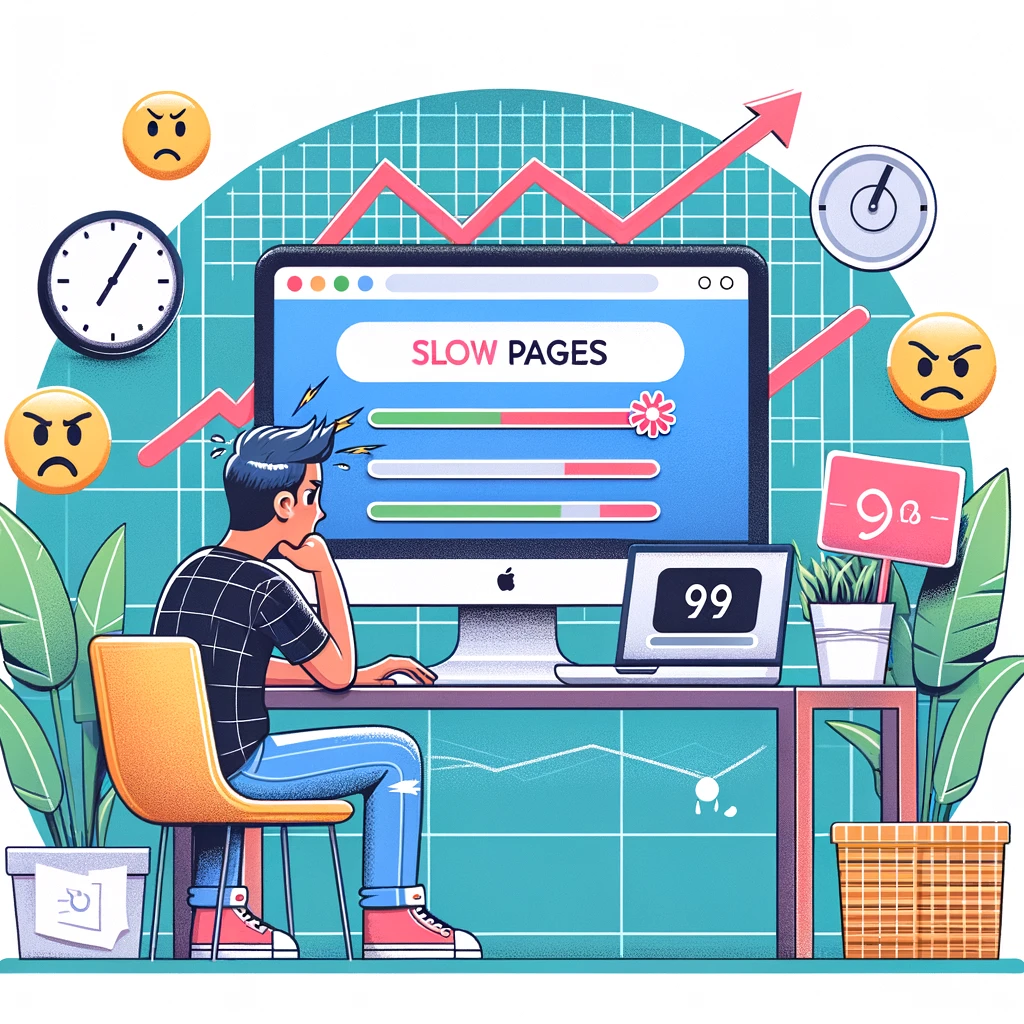
Why are slow pages bad?
Slow pages refer to web pages that load or render at a sluggish pace, resulting in a delayed user experience. Slow page loading times can be caused by various factors, such as large image files, excessive scripts, inefficient code, server issues, or poor network connections. Slow pages negatively impact user satisfaction, as visitors may become frustrated and abandon the site. Additionally, search engines consider page speed as a ranking factor, so slow pages may also affect a website's search engine performance. Optimizing website elements and addressing technical issues can help improve page loading times and enhance overall user experience.
Slow-loading web pages can have several negative consequences, affecting both user experience and website performance. Here are some reasons why slow pages are considered bad:
-
User Experience (UX): Users expect websites to load quickly and smoothly. Slow-loading pages can frustrate visitors, leading to a poor user experience. In today's fast-paced digital environment, people are less likely to stay on a website that takes too long to load.
-
Bounce Rates: A slow website can result in higher bounce rates, meaning visitors leave the site quickly without interacting with the content. This can negatively impact your website's overall performance and could lead to a decrease in conversions or engagement.
-
Search Engine Rankings: Search engines, such as Google, take website speed into account when determining search rankings. Faster-loading pages are more likely to rank higher in search results. Therefore, slow pages can negatively impact your site's visibility and SEO performance.
-
Conversion Rates: Slow-loading pages can have a direct impact on conversion rates. Whether your goal is to sell products, gather leads, or encourage user interaction, a slow website can deter users from completing desired actions, leading to lower conversion rates.
-
Mobile Experience: With an increasing number of users accessing the internet through mobile devices, the importance of mobile optimization cannot be overstated. Slow-loading pages can be particularly problematic on mobile devices, where network speeds may vary. This can lead to a frustrating experience for mobile users.
-
Competitive Disadvantage: In a competitive online landscape, users have plenty of alternatives. If your website is consistently slower than competitors, you may lose potential visitors and customers to faster, more responsive websites.
-
Ad Performance: For websites that rely on advertising revenue, slow page loading times can impact the performance of ads. Users may leave before ads have a chance to load or be displayed, reducing the effectiveness of ad campaigns.
-
User Perception: Slow-loading pages can create a negative perception of your brand or website. Users may associate slow performance with unprofessionalism, lack of attention to detail, or outdated technology.
Detect slow pages with our website audit and monitor for slow pages.
To mitigate these issues, it's essential to optimize website speed by compressing images, leveraging browser caching, minimizing HTTP requests, and employing content delivery networks (CDNs), among other strategies. This helps ensure a positive user experience, improve search engine rankings, and increase the overall effectiveness of your online presence.

See also:
How can I understand why a page is slow? and how fix it?
What are the risks of website migration and how to make the migration secure?
Why is it necessary to conduct a website audit?
How to speed up website loading by optimizing MySQL/SQL queries?